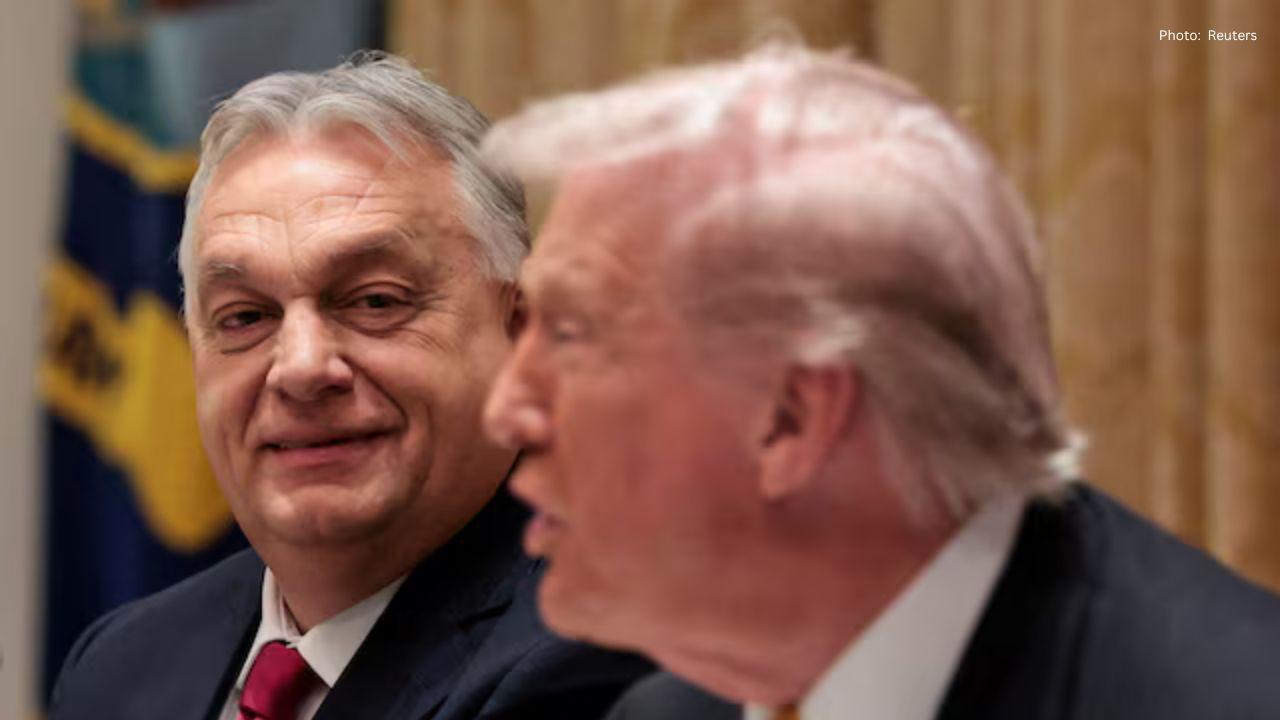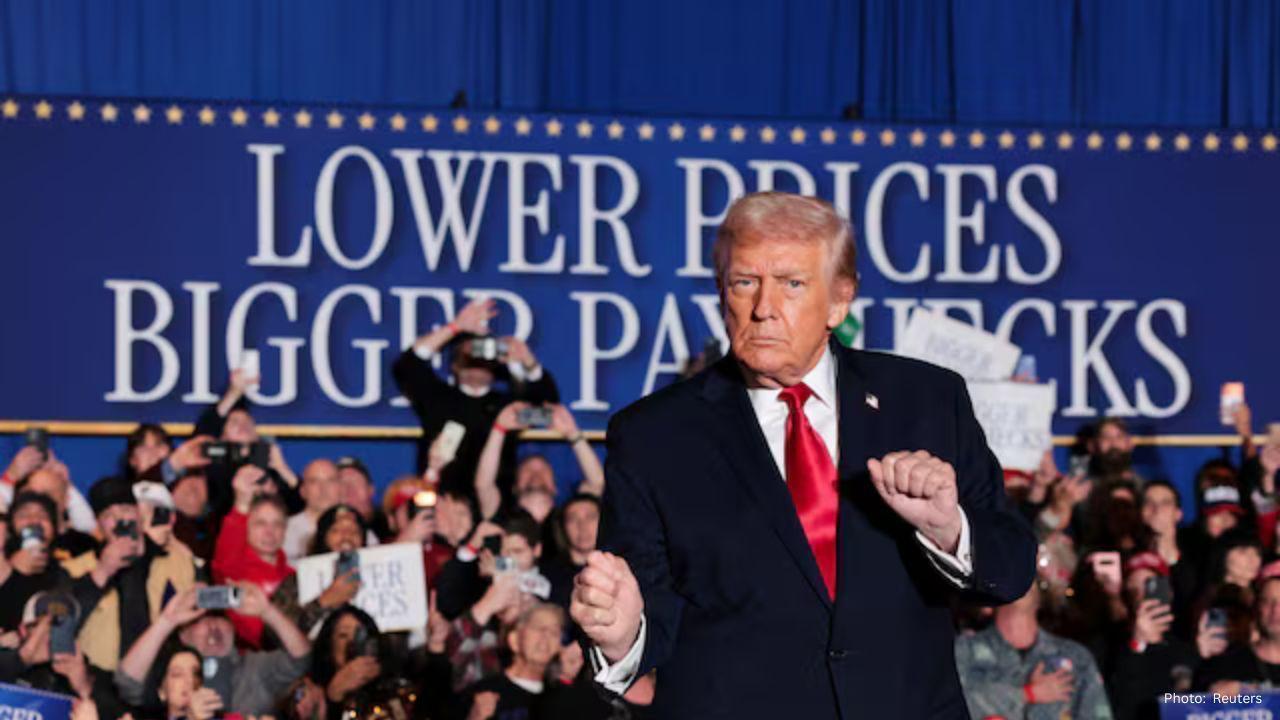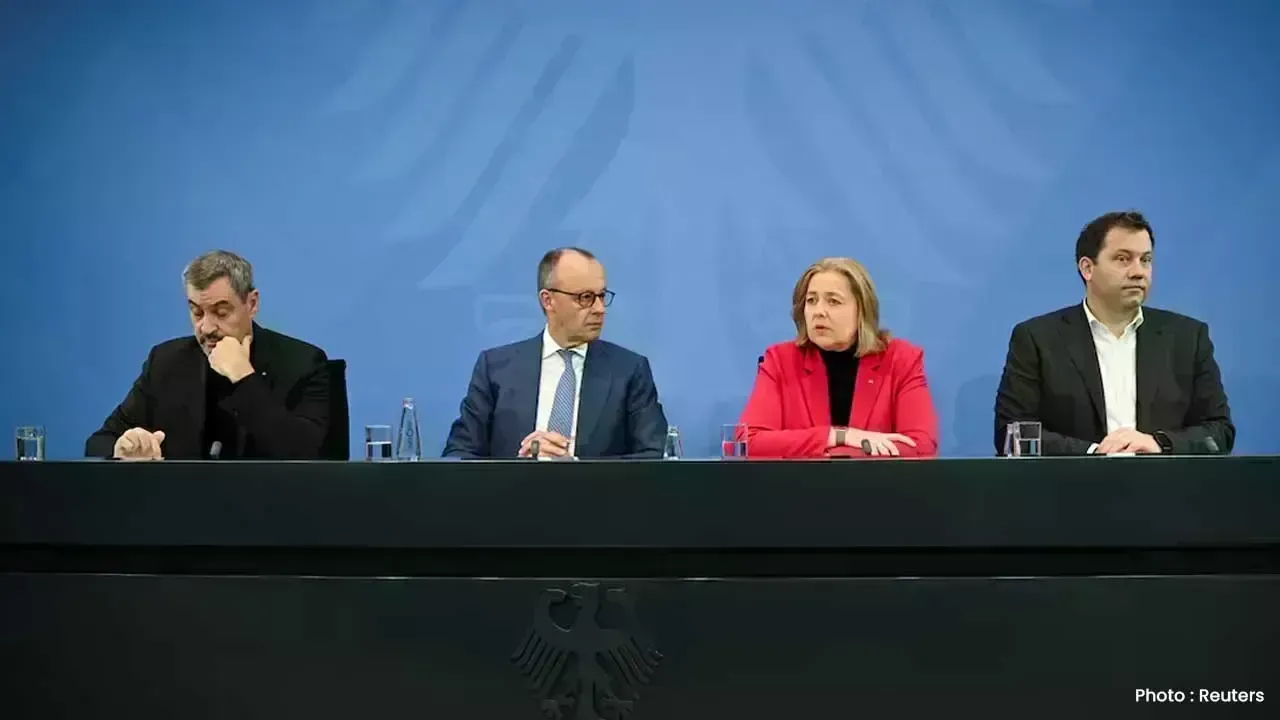
Post by : Monika
Photo: AP
In August 2025, the Trump administration announced plans to halt the U.S. Postal Service's (USPS) initiative to replace its aging fleet of mail trucks with electric vehicles (EVs). This move has sparked a nationwide debate over environmental policies, federal spending, and the future of the USPS.
Background of the USPS EV Initiative
In December 2022, the USPS unveiled a plan to modernize its delivery fleet by introducing electric vehicles. The goal was to replace thousands of gas-powered trucks with cleaner, more efficient EVs. This initiative was part of a broader effort to reduce the agency's carbon footprint and improve operational efficiency.
The plan received initial support from environmental groups and some lawmakers, who viewed it as a step toward achieving federal climate goals. The USPS projected that the transition to electric vehicles would significantly cut greenhouse gas emissions over the coming decades.
Trump Administration's Reversal
However, in August 2025, President Donald Trump directed the USPS to cease its electric vehicle program. The administration cited concerns over the high costs associated with the transition and potential delays in vehicle production. Critics of the program argued that the funds could be better utilized elsewhere, especially given the nation's fiscal challenges.
The decision to cancel the EV initiative has been met with criticism from various quarters. Environmental advocates contend that halting the program undermines efforts to combat climate change and could set back progress in reducing emissions from federal agencies.
Political Reactions
The move to cancel the USPS's electric vehicle program has sparked a political firestorm. Democrats and environmental groups have condemned the decision, viewing it as a rollback of important environmental policies. They argue that the long-term benefits of transitioning to electric vehicles—such as reduced air pollution and lower operating costs—outweigh the initial investment.
On the other hand, some Republicans and fiscal conservatives support the administration's decision, emphasizing the need for cost-effective solutions in federal spending. They argue that the USPS should focus on its core mission of mail delivery and that the electric vehicle program diverts resources from this objective.
Implications for the USPS
The cancellation of the electric vehicle program presents several challenges for the USPS. The agency had already invested significant resources into the initiative, including purchasing electric vehicles and upgrading infrastructure to support them. Abandoning the program could lead to financial losses and wasted investments.
Moreover, the decision may affect the USPS's reputation as a leader in adopting sustainable practices. The agency's commitment to environmental responsibility was seen as a positive step, and reversing this course could impact public perception.
Environmental Concerns
Environmental organizations have expressed concern over the administration's decision. They argue that the USPS's electric vehicle program was an important component of the federal government's efforts to reduce greenhouse gas emissions. Halting the initiative could hinder progress toward meeting national climate targets.
Additionally, the cancellation may discourage other federal agencies from pursuing similar sustainability initiatives, potentially slowing the adoption of green technologies across the government.
Public Opinion
Public reaction to the cancellation of the USPS's electric vehicle program has been mixed. Some citizens support the decision, citing concerns over government spending and the need for fiscal responsibility. Others express disappointment, believing that the move undermines efforts to protect the environment and promote clean energy.
Surveys indicate that a significant portion of the American public favors increased investment in renewable energy and sustainable infrastructure. The reversal of the USPS's EV program may influence future policy discussions on these issues.
The Trump administration's decision to cancel the U.S. Postal Service's electric vehicle program marks a significant shift in federal environmental policy. While the move addresses concerns over costs and production delays, it raises questions about the government's commitment to sustainability and climate action.
As the debate continues, the future of the USPS's electric vehicle initiative remains uncertain. The outcome will likely influence similar efforts in other federal agencies and shape the direction of environmental policy in the coming years.










OpenAI Highlights Growing Cybersecurity Threats from Emerging AI Technologies
OpenAI has raised alarms about the increasing cyber risks from its upcoming AI models, emphasizing s

Manchester City Triumphs 2-1 Against Real Madrid, Alonso Faces Increased Scrutiny
Manchester City secured a 2-1 victory over Real Madrid, raising concerns for coach Xabi Alonso amid

Cristiano Ronaldo Leads Al Nassr to 4-2 Victory Over Al Wahda in Friendly Face-Off
Ronaldo's goal helped Al Nassr secure a 4-2 friendly win over Al Wahda, boosting anticipation for th

Landon Donovan Challenges Australia Coach on World Cup Prospects
Landon Donovan counters Australia coach Tony Popovic’s optimism for the World Cup, expecting an earl

Mercedes-Benz Forms Landmark Partnership with WTA
Mercedes-Benz and the WTA unveil a significant partnership effective January 2026, with major invest

Abhishek Addresses Divorce Rumours Concerning His Family
Abhishek Bachchan confirms that daughter Aaradhya remains oblivious to divorce speculations, focusin